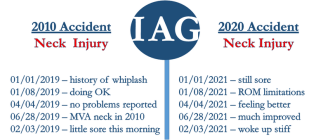
The Role and Responsibilities of a Home Insurance Adjuster.
When it comes to protecting your home, having insurance is crucial. However, in the unfortunate event that you need to file a claim, the role of a home insurance adjuster becomes essential. Also known as a claims adjuster, their main responsibility is to assess and determine the amount of compensation that should be paid out for an insurance claim.
Insurance adjusters play a vital role in the claims process. They are responsible for investigating the cause of the loss or damage to your home. This involves visiting the property, conducting interviews, collecting evidence, and talking to witnesses. In order to provide an accurate assessment, an adjuster must thoroughly review the terms and conditions outlined in the insurance policy.
The responsibilities of a home insurance adjuster are extensive. They must evaluate the extent of the damage, estimate the cost of repairs or replacements, and negotiate with the policyholder and other parties involved. Additionally, adjusters must keep detailed records of their findings and communicate their assessment to the insurance company, as well as the homeowner.
In summary, the role of a home insurance adjuster is to ensure a fair and equitable settlement for both the insurance company and the policyholder. Their responsibilities include assessing the cause and extent of damage, estimating costs, negotiating claims, and keeping accurate records. It is important for homeowners to understand the role of an adjuster in order to have a successful claims process and receive the compensation they deserve.
Understanding the Home Insurance Adjuster’s Role
An insurance adjuster is a crucial professional in the field of home insurance. They play a vital role in the process of filing and settling insurance claims related to damages or losses to one’s home. The responsibilities of a home insurance adjuster include:
| Investigation: | The adjuster thoroughly investigates the cause and extent of the damage to the insured property. They may visit the property, examine documents, and interview relevant parties to gather information. |
| Evaluation: | Based on the gathered information, the adjuster assesses the value of the damage and determines the appropriate coverage under the insurance policy. |
| Negotiation: | The adjuster negotiates with the policyholder to reach a fair settlement for the damages. This may involve discussing repair options, replacement costs, and other relevant factors. |
| Documentation: | The adjuster is responsible for documenting the entire claims process, including photographs, written reports, and any other supporting evidence. |
| Communication: | Throughout the claims process, the adjuster acts as a liaison between the insurance company, the policyholder, and any other parties involved. They provide regular updates on the status of the claim and address any concerns or questions. |
| Resolution: | Once a settlement is reached, the adjuster ensures all necessary paperwork is completed and facilitates the payment of the approved claim amount. |
The role of a home insurance adjuster is to ensure a fair and efficient claims process for both the policyholder and the insurance company. Their expertise and attention to detail are essential in accurately assessing damages and determining appropriate coverage.
Importance of a Home Insurance Adjuster in Claims Process
When it comes to the claims process for home insurance, the role and responsibilities of an adjuster are crucial. A home insurance adjuster is an expert who assesses the damage to a client’s property and helps to determine the compensation that should be provided based on the coverage.
The adjuster plays a vital role in ensuring a fair and accurate evaluation of the damage. They have extensive knowledge and experience in the industry and are trained to thoroughly inspect the property, assess the extent of the damage, and estimate the cost for repairs or replacement.
One of the key responsibilities of a home insurance adjuster is to work closely with the policyholder and the insurance company throughout the claims process. They act as a liaison between both parties, ensuring effective communication, and helping to resolve any disputes or issues that may arise.
Furthermore, the adjuster also plays a crucial role in ensuring that the policyholder receives the maximum payout for their claim. They are well-versed in the intricacies of insurance policies and coverage limits, allowing them to navigate the complex process and negotiate with the insurance company on behalf of the policyholder.
Overall, the role of a home insurance adjuster is essential in the claims process. They provide expertise, guidance, and support to the policyholder, helping them navigate through the often overwhelming process of filing a claim and ensuring that they receive the compensation they are entitled to.
Without the presence of a home insurance adjuster, the claims process can be daunting and challenging for the policyholder. Their expertise and experience play a vital role in ensuring a fair and timely resolution to the claim, giving the policyholder peace of mind and financial assistance to recover from their loss.
Skills and Qualifications Required for a Home Insurance Adjuster
Being a home insurance adjuster requires a combination of skills and qualifications. The role of a home insurance adjuster is to assess the damage to a property and determine the appropriate compensation for the policyholder. This requires not only technical expertise but also excellent communication and problem-solving abilities.
Here are some of the key skills and qualifications required for a home insurance adjuster:
| Technical Knowledge: | A home insurance adjuster must have a deep understanding of insurance policies, coverage limits, and claims procedures. They should also have knowledge of construction and building codes to accurately assess damage to a property. |
| Investigation Skills: | An adjuster needs to be skilled in investigating and gathering information. This includes interviewing policyholders, witnesses, and experts, reviewing documents and records, and inspecting the property. |
| Attention to Detail: | Accuracy is crucial in determining the correct compensation for a claim. A home insurance adjuster must pay close attention to detail and be meticulous in evaluating the extent of the damage and the value of the property. |
| Negotiation Skills: | Adjusters often have to negotiate with policyholders, contractors, and other parties involved in the claim process. They need to be persuasive, assertive, and able to reach fair and satisfactory settlements. |
| Communication Skills: | An adjuster must have excellent verbal and written communication skills. They need to explain complex insurance terms and procedures to policyholders, write detailed reports, and negotiate effectively. |
| Customer Service: | Providing excellent customer service is essential in this role. A home insurance adjuster must be empathetic, patient, and able to handle difficult and emotional situations with professionalism and compassion. |
| Time Management: | Dealing with multiple claims simultaneously requires effective time management skills. An adjuster needs to prioritize tasks, meet deadlines, and ensure efficient and timely processing of claims. |
In addition to these skills, a home insurance adjuster should have a bachelor’s degree in a related field such as business, finance, or insurance. They may also need to obtain specific certifications or licenses depending on the state or country they work in.
Overall, being a home insurance adjuster requires a combination of technical knowledge, investigative skills, attention to detail, negotiation and communication abilities, customer service orientation, and effective time management.
Evaluating and Assessing Property Damage as an Adjuster
As a home insurance adjuster, one of the key responsibilities is to evaluate and assess property damage. After a claim is filed by a policyholder, it is the adjuster’s role to inspect the home and determine the extent of the damage. This evaluation is essential in order to determine the coverage and compensation that the policyholder is entitled to.
During the evaluation process, the home insurance adjuster must carefully examine the property and assess the damage caused by various factors such as fire, water, theft, or natural disasters. They may need to investigate the cause and origin of the damage and gather evidence to support their findings.
| 1. Documenting and photographing the damage | An adjuster must thoroughly document and photograph all aspects of the property damage. This helps establish the evidence and supports the claim process. |
| 2. Estimating the cost of repairs or replacement | The adjuster needs to determine the estimated cost of repairs or replacement for the damaged property. This evaluation is based on factors such as the age of the property, current market prices, and local building codes. |
| 3. Reviewing policy coverage | It is important for the adjuster to review the policy coverage and understand the limits and exclusions. This ensures that the policyholder receives the appropriate compensation based on their coverage. |
| 4. Negotiating settlements | An adjuster may need to negotiate with the policyholder or their representatives to reach a fair settlement. This involves considering the extent of the damage, the policy terms, and any applicable deductibles. |
Overall, the role of a home insurance adjuster involves evaluating and assessing property damage, documenting and photographing the damage, estimating repair costs, reviewing policy coverage, and negotiating settlements. By fulfilling these responsibilities, adjusters play a crucial role in helping policyholders navigate the claims process and receive the compensation they are entitled to.
Determining Coverage and Limitations in Home Insurance Policies
The role of a home insurance adjuster is to determine the coverage and limitations of a home insurance policy. This involves carefully reviewing the policy documents, assessing the damages or losses, and applying the terms and conditions outlined in the policy.
When determining coverage, the adjuster must identify which types of damages or losses are covered by the policy. This can include damage from fires, storms, theft, and other covered perils. They must carefully inspect the property and assess the extent of the damages to determine if they fall within the policy’s coverage.
The adjuster also plays a crucial role in assessing the limitations of the policy. This involves identifying any exclusions or restrictions that may limit coverage for certain types of damages or losses. For example, some policies may have specific limitations for water damage or liability claims.
Furthermore, the adjuster must also determine the policy’s coverage limits. This refers to the maximum amount that the insurance company will pay out for covered damages or losses. They will evaluate the value of the property and its contents, taking into account factors such as depreciation and market value, to determine the appropriate coverage limits.
The responsibilities of a home insurance adjuster in determining coverage and limitations are crucial in ensuring that policyholders receive the appropriate compensation for their damages or losses. Their expertise in interpreting policy terms and assessing damages helps to facilitate smooth and fair claim settlements.
Negotiating and Settling Claims with Homeowners and Insurance Companies
The role of a home insurance adjuster involves the responsibilities of negotiating and settling claims with homeowners and insurance companies. This critical function requires the adjuster to act as an intermediary between the homeowner and the insurance company, ensuring a fair and timely resolution.
When a homeowner files a claim, the adjuster evaluates the damages and determines the extent of coverage outlined in the insurance policy. They work closely with the homeowner to gather necessary documentation, such as estimates, photographs, and repair invoices, to support the claim. This evidence is crucial in securing a fair settlement for the homeowner.
The adjuster is responsible for assessing the value of the damages based on industry standards and guidelines. They consider factors such as the cost of repairs, the age and condition of the home, and any additional expenses incurred as a result of the damages. It is their duty to ensure that the homeowner receives the appropriate compensation to restore their home to its pre-loss condition.
Once the evaluation is complete, the adjuster engages in negotiations with the insurance company on behalf of the homeowner. This process involves presenting the evidence gathered, advocating for the homeowner’s best interests, and reaching a settlement agreement. Negotiations may involve discussing the scope of coverage, the amount of compensation, and any potential disputes or disagreements that arise.
In addition to negotiating with the insurance company, the adjuster works closely with the homeowner to address their concerns and answer any questions they may have. Effective communication is crucial in building trust and ensuring the homeowner’s satisfaction throughout the claims process.
After reaching a settlement agreement, the adjuster coordinates the payment to the homeowner. They also provide guidance on using the settlement to make the necessary repairs or replacements, recommending reputable contractors, if needed.
In conclusion, the role of a home insurance adjuster involves the important responsibilities of negotiating and settling claims with homeowners and insurance companies. Their expertise and knowledge of insurance policies and procedures are essential in ensuring a fair and satisfactory resolution for all parties involved.
Conducting Investigations and Gathering Evidence as an Adjuster
As a home insurance adjuster, one of the key responsibilities and roles you have is conducting investigations and gathering evidence. This crucial part of your job involves assessing the damages and determining the cause and extent of the loss. By conducting thorough investigations, you can accurately evaluate the claim and ensure a fair settlement for the policyholder.
Investigations:
When a homeowner files a claim for damages to their home, it is your duty as an adjuster to initiate a comprehensive investigation. This process requires you to visit the property and assess the damages firsthand. You will need to examine the affected areas, take photographs, and evaluate the extent of the loss. Additionally, you may need to gather information from witnesses, contractors, or other relevant parties.
Depending on the nature of the claim, you may also need to consult with experts such as engineers, forensic specialists, or electricians. Their expertise can provide valuable insights into the cause of the damages and help you determine if the claim is valid.
“By conducting thorough investigations, you can accurately evaluate the claim and ensure a fair settlement for the policyholder.”
Gathering Evidence:
During the investigations, it is crucial to gather all relevant evidence to support your findings. This evidence can include photographs, videos, documents, and statements from witnesses or parties involved. By collecting and documenting this evidence, you can effectively support your evaluation and ensure transparency in the claims process.
In addition to physical evidence, you will also need to review the homeowner’s insurance policy and any other pertinent documents. This will help you understand the coverage limits, exclusions, and any applicable deductibles that may impact the settlement.
Ensuring Accuracy and Fairness:
As an adjuster, your role is to objectively assess the damages and determine the appropriate compensation. It is essential to approach each claim with impartiality and conduct a thorough investigation to gather all the necessary evidence. By doing so, you can ensure that the policyholder receives a fair settlement based on the damages incurred and the terms of their insurance policy.
In conclusion, conducting investigations and gathering evidence is a critical part of the responsibilities and role of a home insurance adjuster. By performing thorough investigations, collecting relevant evidence, and ensuring accuracy and fairness, you can fulfill your duties and help provide a smooth and equitable claims process for all parties involved.
Working with Contractors and Repair Professionals in the Claims Process
As a home insurance adjuster, one of your main responsibilities is to work with contractors and repair professionals in the claims process. This collaboration plays a crucial role in ensuring that the policyholder’s property is properly assessed, repaired, and restored.
When handling a claim, you will often need to communicate with contractors to assess the damage and estimate repair costs. It is important to collaborate effectively with these professionals to accurately determine the scope of the repairs needed. This involves providing them with all relevant information, documentation, and supporting evidence to support your evaluation as an adjuster.
Additionally, you may need to coordinate repairs and restoration work with contractors once the claim is approved. This requires effective project management skills, as you will need to schedule and oversee the repair process to ensure it is carried out efficiently and within the approved budget.
Throughout the claims process, it is crucial to maintain open lines of communication with contractors and repair professionals. This helps to address any concerns or questions they may have and ensures that everyone involved is on the same page. Regular updates and progress reports are also important for keeping the policyholder informed about the status of their claim and the repair work being done.
Working with contractors and repair professionals also involves verifying their qualifications and credentials to ensure they are qualified and capable of completing the necessary work. This may involve reviewing licenses, certifications, and references to ensure they meet the standards set by the insurance company.
In summary, the role and responsibilities of a home insurance adjuster include effectively working with contractors and repair professionals in the claims process. By collaborating closely with these professionals, you can accurately assess damage, estimate repair costs, coordinate repairs, and ensure that the property is restored to its pre-loss condition.
Handling Disputes and Appeals in Home Insurance Claims
One of the responsibilities of a home insurance adjuster is to handle disputes and appeals that arise during the claims process. As part of their role, adjusters must carefully review the details of the claim and assess whether it meets the coverage terms outlined in the insurance policy.
In some cases, disputes may arise when the homeowner believes that their claim has been denied or underpaid. During such situations, the adjuster plays a crucial role in resolving these disputes by conducting a thorough investigation and providing clear and concise explanations to the policyholder. They may need to gather additional evidence, consult with experts, and analyze relevant documentation to make a fair and informed decision.
Adjusters also have the responsibility to communicate and negotiate with the policyholder or their legal representative to resolve disputes. This may involve negotiating settlements, revisiting the assessment of damages, or providing alternative dispute resolution options such as mediation or arbitration.
If the dispute cannot be resolved through negotiation, the adjuster may need to participate in the appeal process. This involves presenting the findings of their investigation and providing a comprehensive explanation of their decision. The adjuster may need to attend court hearings, provide testimonies, and collaborate with other professionals involved in the case, such as forensic experts or legal counsel.
Throughout the dispute and appeal process, the adjuster must remain impartial and objective, following the guidelines set by the insurance company and applicable laws. They must ensure that all parties involved understand the reasoning behind their decision and provide any necessary documentation or evidence to support their stance.
Overall, dealing with disputes and appeals in home insurance claims requires both strong communication skills and a deep understanding of insurance policies and regulations. The adjuster’s role is essential in ensuring that the claims process is fair, transparent, and in accordance with the terms of the policy.
Staying Updated on Industry Regulations and Best Practices as an Adjuster
One of the key responsibilities of a home insurance adjuster is to stay informed about the latest industry regulations and best practices. With the ever-changing landscape of the insurance industry, it is crucial for adjusters to continuously update their knowledge and skills to provide the best service to their clients.
Insurance regulations can vary from state to state, and it is the responsibility of the adjuster to be aware of and comply with these regulations. This ensures that the claims process is carried out in accordance with the law and protects both the insured and the insurance company.
Moreover, staying updated on industry best practices allows adjusters to handle claims efficiently and effectively. Best practices are developed based on years of experience and industry standards, and they provide guidelines for adjusters to follow when assessing damages, determining coverage, and negotiating settlements.
Adjusters can stay updated on industry regulations and best practices through various means. Attending industry conferences and seminars can provide valuable insights and networking opportunities. Additionally, subscribing to industry publications and participating in continuing education programs can help adjusters stay informed about the latest trends, regulations, and best practices.
Lastly, adjusters can also benefit from joining professional organizations or associations that provide resources, networking opportunities, and professional development opportunities. These organizations often offer training programs, webinars, and forums where adjusters can learn from and collaborate with industry experts.
By staying updated on industry regulations and best practices, home insurance adjusters can ensure that they are providing the best possible service to their clients and maintaining compliance with the law.
Communication and Documentation Skills for Home Insurance Adjusters
Effective communication is a crucial skill for home insurance adjusters. Their responsibilities involve interacting with policyholders, insurance companies, contractors, and other professionals involved in the claims process. It is the adjuster’s role to gather information, assess damages, and determine coverage. In order to carry out these tasks effectively, home insurance adjusters must possess excellent communication and documentation skills.
Communication is key throughout the entire claims process. An adjuster needs to be able to clearly explain the insurance policy, the claims process, and any additional information that the policyholder needs to provide. They also need to be able to listen actively and empathize with the policyholder’s concerns and questions.
Documentation is another critical aspect of an adjuster’s responsibilities. They must accurately and thoroughly document all assessments, conversations, and findings related to a claim. This includes taking detailed notes, capturing photographs of damages, and obtaining written statements from witnesses or other involved parties.
To effectively communicate and document, a home insurance adjuster must also possess strong organizational and time management skills. They need to be able to prioritize tasks, meet deadlines, and keep detailed records of their activities.
- Effective communication and documentation skills also involve being proficient in using technology. An adjuster needs to be comfortable with using software and mobile applications that facilitate communication, documentation, and data analysis.
- A home insurance adjuster must also be able to adapt their communication style to different situations and individuals. They need to be able to explain complex concepts in simple terms to policyholders and communicate technical information effectively with insurance companies and professionals in the field.
- The adjuster’s communication and documentation should always be professional and accurate. They need to be able to present their findings and assessments in a clear and concise manner, both in written reports and in verbal communication.
- Overall, communication and documentation skills are essential for a home insurance adjuster to effectively carry out their responsibilities. They play a key role in ensuring that claims are processed accurately and efficiently, helping policyholders get the coverage they need in a timely manner.
Providing Customer Service and Support to Homeowners in Claims Process
As an insurance adjuster, one of the key roles is to provide exceptional customer service and support to homeowners throughout the claims process. This involves effectively communicating with the homeowners and ensuring that they understand the insurance policies, coverage, and the steps involved in filing a claim.
Homeowners often rely on insurance adjusters to guide them through the claims process and help them navigate any challenges or difficulties that may arise. The adjuster acts as a liaison between the homeowners and the insurance company, working to ensure that the homeowners’ needs are met and that they receive appropriate compensation for their damages or losses.
Customer service and support also involve addressing any questions or concerns that homeowners may have. This may include explaining the claims process in detail, providing updates on the status of the claim, and assisting with any necessary paperwork or documentation. The adjuster must be knowledgeable about the insurance policies and be able to explain complex terminology in a clear and concise manner to homeowners.
Furthermore, providing customer service and support requires empathy and understanding. Homeowners may be going through a difficult time after experiencing damage or loss to their homes, and it is important for the adjuster to approach every interaction with compassion and patience. They should actively listen to the homeowners’ concerns and work to find solutions that meet their needs.
In addition to the initial filing of the claim, customer service and support continue throughout the entire claims process. This includes coordinating inspections, evaluating damages, negotiating settlements, and assisting with any necessary repairs or replacements. The adjuster must be responsive to homeowners’ inquiries and provide regular updates on the progress of the claim.
In summary, the role of a home insurance adjuster involves providing exceptional customer service and support to homeowners throughout the claims process. This includes effective communication, addressing questions and concerns, and working to find solutions that meet the homeowners’ needs. By fulfilling these responsibilities, the adjuster helps homeowners navigate the often complex and challenging world of insurance claims, ensuring that they receive the support and compensation they deserve.
Question-Answer:
What is a home insurance adjuster?
A home insurance adjuster is a professional who assesses and evaluates property damage claims for insurance companies. They investigate the cause of the damage, estimate the cost of repairs, and determine the coverage provided by the homeowner’s insurance policy.
What are the responsibilities of a home insurance adjuster?
The responsibilities of a home insurance adjuster include conducting a thorough investigation to determine the cause of the property damage, assessing the extent of the damage, estimating the cost of repairs, reviewing the insurance policy to determine coverage, negotiating with the policyholder or their representative, and making recommendations to the insurance company.
How does a home insurance adjuster determine the cost of repairs?
A home insurance adjuster determines the cost of repairs by conducting a detailed inspection of the property damage, obtaining estimates from contractors or repair professionals, considering the cost of materials and labor, and taking into account any additional factors such as depreciation. They may also consult industry databases to ensure accurate pricing.
What qualifications and skills are required to become a home insurance adjuster?
To become a home insurance adjuster, one typically needs a high school diploma or equivalent. Some employers may prefer candidates with a bachelor’s degree in a relevant field such as business, finance, or construction. Strong analytical and communication skills are essential, as well as attention to detail, problem-solving abilities, and the ability to work independently and under pressure. Additionally, obtaining a license or certification specific to claims adjusting may be required in some states.






